Beginners Guides
How to Know When Orange Juice Is Bad

Have you ever wondered how to tell if orange juice has gone bad?
We’ve got you covered. In this article, we’ll explore the telltale signs that your favorite citrusy beverage is no longer safe to consume.
Through our thorough and evidence-based approach, we’ll examine:
- Color changes
- The smell test
- Texture changes
- The taste test
- The importance of checking the expiration date
So, sit back, relax, and let us serve you with the knowledge to keep your orange juice experience fresh and enjoyable.

Key Takeaways
- Color changes, such as a dull, brownish hue, indicate that orange juice is no longer fresh and should not be consumed.
- The smell test is an effective way to assess the quality of orange juice, as bad orange juice develops a sour or off-putting odor.
- Texture changes, such as pulp separation, consistency change, or settling and separation into layers, are crucial in determining the freshness of orange juice.
- A sour, bitter, or fermented taste indicates that orange juice has gone bad, and it’s important to choose high-quality brands without added sugars or preservatives.
Color Changes
We’ll notice if the color of our orange juice changes. The color of orange juice is an important indicator of its freshness and quality. When orange juice is freshly squeezed or packaged, it’s typically a vibrant and bright orange color.
However, over time, the oxidation levels in the juice can cause the color to change. As the juice oxidizes, it may turn from a bright orange color to a duller, brownish hue. This change in color is a clear sign that the orange juice is no longer fresh and has reached the end of its shelf life.
It’s important to remember that oxidation not only affects the color of the juice but also its taste and nutritional value. Therefore, it’s recommended to consume orange juice before it undergoes significant color changes.
Smell Test
The first thing we should do to determine if our orange juice is bad is to give it a sniff. The smell test is a simple yet effective way to assess the quality of orange juice. When orange juice goes bad, it develops a sour or off-putting odor. This is often an indication that the juice has surpassed its shelf life and is no longer safe to consume. If the orange juice smells rancid or fermented, it’s best to discard it rather than take any chances. In addition to the smell, changes in color or consistency can also be a sign that the juice has spoiled. Similarly, if you’re wondering **how to spot bad lemon juice**, be alert for any sour, musty odors and visual signs of discoloration or cloudiness, which are clear indications of spoilage.
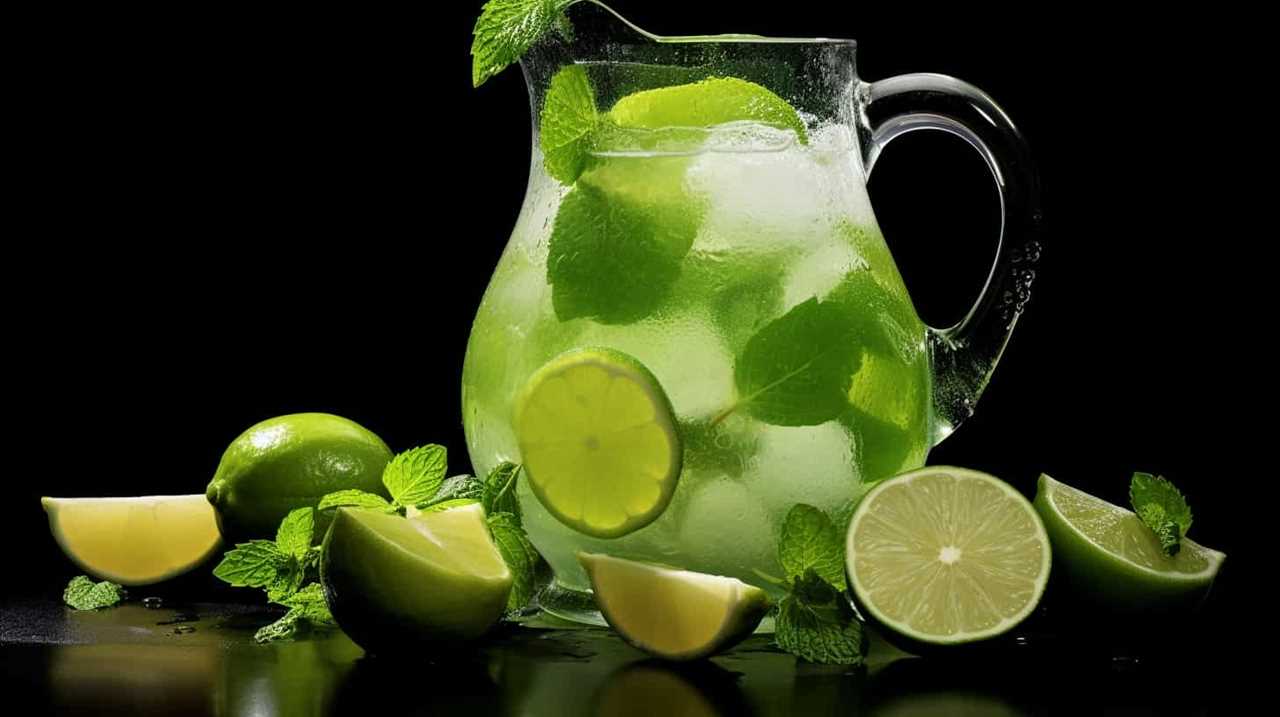
Proper storage is crucial in maintaining the freshness of orange juice. It’s recommended to store orange juice in the refrigerator at temperatures below 40°F (4°C) to prevent the growth of bacteria and extend its shelf life. By regularly checking the smell of your orange juice and following appropriate storage recommendations, you can ensure that you’re serving fresh and safe juice to others.
Now, let’s move on to the next indicator of orange juice spoilage: texture changes.
Texture Changes
Our orange juice can undergo texture changes, but we can easily recognize these variations. Here are three ways to identify texture changes in orange juice:
- Pulp separation: When orange juice starts to go bad, you may notice that the pulp separates from the liquid. Instead of a smooth and uniform consistency, the juice will have clumps or chunks of pulp floating around.
- Consistency change: Fresh orange juice has a smooth and slightly thick consistency. However, as it goes bad, the consistency may become thinner or thicker. If the juice becomes watery or gel-like, it’s a clear sign that it’s no longer fresh.
- Settling and separation: Over time, orange juice may settle and separate into layers. You might notice a clear liquid at the top and a thicker, cloudy layer at the bottom. This indicates that the juice has started to spoil.
Recognizing these texture changes is crucial in determining the freshness of orange juice. However, texture alone isn’t enough to make a final judgment. Let’s move on to the next step – the taste test – to get a comprehensive understanding of the orange juice’s quality.

Taste Test
Before we begin the taste test, let’s gather some fresh orange juice samples.
When it comes to taste testing orange juice, it’s important to consider both the flavor and the overall quality of the juice. Fresh orange juice should have a sweet and tangy taste, with a refreshing citrus flavor. If the juice tastes sour, bitter, or has a fermented odor, it may be an indication that it’s no longer fresh and has gone bad.
When selecting orange juice, it’s also essential to consider the health benefits and choose the best brands. Look for brands that use 100% pure orange juice without any added sugars or preservatives. These brands often provide the highest quality juice with maximum health benefits.
Expiration Date
When should we check the expiration date on orange juice, and what should we do if it has passed? Checking the expiration date is crucial in determining the safety and quality of orange juice. Here are three important things to consider:

- Shelf life: Orange juice typically has a shelf life of about one week after opening. However, unopened bottles can last much longer, usually up to a month. It’s important to check the expiration date to ensure you consume the juice within its recommended timeframe.
- Storage recommendations: Proper storage is key to extending the shelf life of orange juice. It should be refrigerated at temperatures below 40°F (4°C) to prevent spoilage. Additionally, storing it away from direct sunlight and strong odors can help maintain its freshness and flavor.
- What to do if it has passed: If the expiration date on your orange juice has passed, it’s best to err on the side of caution and discard it. Consuming expired orange juice can pose health risks, such as foodborne illnesses. It’s always better to prioritize safety and choose a fresh and unexpired option.
Frequently Asked Questions
Can Orange Juice Still Be Safe to Consume if It Has a Slightly Different Taste Than Usual?
When orange juice has a slightly different taste than usual, it could be a potential indication of spoilage. However, it is important to note that color changes in orange juice can also be a sign of spoilage.
How Long Does Orange Juice Usually Last After the Expiration Date?
Orange juice typically lasts for about 7-10 days after the expiration date. To tell if it has gone bad, look for changes in color, smell, or taste. Freezing orange juice is possible, but quality may be affected.
Can the Color Change in Orange Juice Be an Indication of Spoilage, Even if It Still Smells Fine?
Yes, the color change in orange juice can be an indication of spoilage, even if it still smells fine. Preservatives play a role in preventing this, but it’s important to check for any abnormal color changes before consuming.
What Are Some Common Signs of Texture Changes in Orange Juice That Indicate It Is No Longer Safe to Drink?
Signs of texture changes in spoiled orange juice include a thick or slimy consistency, separation of pulp or sediment, and a curdled or lumpy appearance. These indicators can help determine if orange juice has gone bad based on texture.
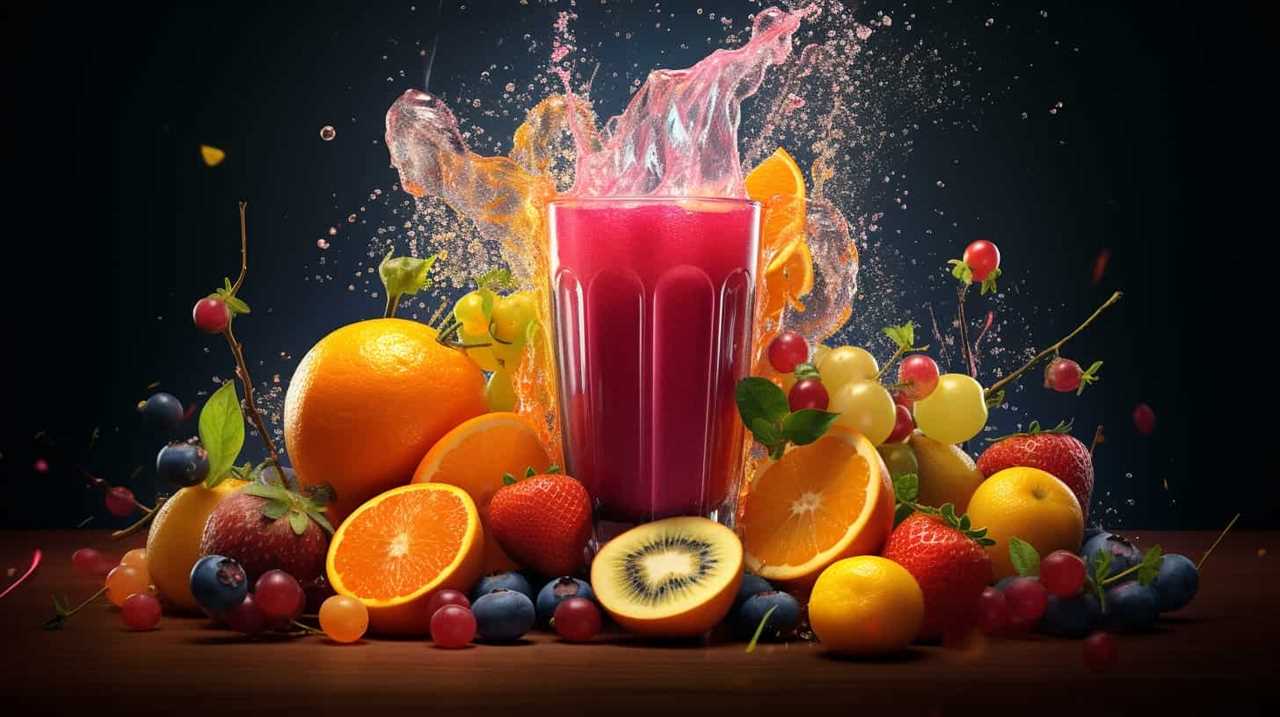
Can the Smell Test Alone Determine if Orange Juice Is Bad, or Should Other Factors Be Considered as Well?
The smell test alone cannot determine if orange juice is bad. It’s important to consider the expiration date and other factors that can affect its freshness. Let’s explore these factors together.
Conclusion
In conclusion, when determining if orange juice is bad, it’s crucial to consider color changes, smell, texture alterations, and taste. These factors, alongside checking the expiration date, will provide a comprehensive evaluation.
By carefully observing these indicators, we can make informed decisions about the quality and safety of orange juice.
Remember, always rely on scientific evidence and accurate assessments to ensure a healthy consumption experience.

Susannah expertise lies in researching and compiling evidence-based content on juicing, nutrition, and overall health. She is committed to ensuring that The Juicery World offers accurate, up-to-date, and trustworthy information to empower readers to take control of their health. Susannah’s goal is to inspire individuals to embrace juicing as a way to nourish their bodies and live their best lives.
Health Benefits of Juice
The Best Time to Drink Aloe Vera Juice


Drinking aloe vera juice provides several health benefits. It serves as a natural laxative and contains polyphenols that can help lower cholesterol and glucose levels in the bloodstream. Moreover, it is beneficial for the skin. It is important to note that it should be avoided during pregnancy or while breastfeeding.
Summer is the best time to drink aloe vera juice
Summer is the best season to drink aloe vera juice for its anti-inflammatory, antioxidant, and cooling properties. This succulent plant has long been prized for its medicinal benefits. It is rich in vitamins and minerals and antioxidants. It can also be used to treat burns and wounds. Drinking aloe vera juice daily can help hydrate the body and soothe symptoms of headaches, skin irritations, and stomach problems. Additionally, regular consumption of aloe vera juice may support digestion and improve overall gut health. Many users report feeling improvements in skin clarity and digestive comfort within just a few weeks, although individual results vary. To better understand how quickly you might experience positive effects, it can be helpful to consult an *aloe vera juice benefits timeline* that outlines potential milestones over time.
Aloe vera juice contains a variety of nutrients and minerals, including antioxidants, vitamin A and C, and folic acid. It also contains manganese and selenium, as well as chromium and potassium. Aloe vera juice is not recommended for pregnant women or breastfeeding women. For these reasons, it is best to consult a physician before consuming aloe vera juice.
It is a laxative
Aloe vera juice can be used as a natural laxative. However, there are some risks. You should only consume a small amount. You should aim to consume no more than one cup per day, or eight ounces. You should also consult with your doctor before taking aloe vera juice.
Drinking large amounts of aloe vera juice can lead to gastrointestinal distress and electrolyte imbalances. You may also experience diarrhea or vomiting.
It is rich in polyphenols
Drinking aloe vera gel is a great way of reaping the benefits of the plant’s polyphenols. These compounds are known to help prevent several diseases. They are also high in antioxidants. They are found in high concentrations in aloe. Aloe vera is also rich in minerals and vitamins. The plant is rich in Vitamin B-12, which can increase immunity and lower blood sugar levels.
Aloe vera juice is made by crushing the leaves and pressing them. The juice is then filtered. Aloe vera juice can taste bitter because of the sugar in many commercial brands. The juice might also be advertised as a digestive aid or anti-inflammatory. It may even be sold as tea.
It is not recommended for pregnant ladies
The American Pregnancy Association says that drinking aloe vera juice during pregnancy is not safe. This is because aloe can cause uterine contractions and can lower blood sugar. It can also lower electrolyte levels. If you’re planning on drinking aloe juice during pregnancy, consult your doctor first.
The juice can be used by women who are not pregnant. It can be used as a topical treatment for skin burns, hair loss, hemorrhoids, and stomach maladies. It is best to avoid drinking it during pregnancy as it can cause complications.
It has sugar
People with diabetes should not drink aloe vera juice containing sugar. It is a low-calorie beverage but the sugar it contains can increase insulin secretion, which can lead dangerously low blood glucose levels. You should also be aware that aloe vera juices can contain sugar and carbs which can increase the glucose spike. Therefore, it is important to speak with your doctor before consuming this juice.
Aloe vera juice is primarily water but also contains a small amount of sugar. It also contains small amounts of vitamins, minerals, and other nutrients. Although you won’t get the recommended daily allowance of any vitamin or mineral, it will still be beneficial to your body.
Cindy thoroughly researches juicing trends, techniques, and recipes to provide readers with practical advice and inspiration. Her writing style is accessible, engaging, and designed to make complex concepts easy to understand. Cindy’s dedication to promoting the advantages of juicing shines through her work, empowering readers to make positive changes in their lives through the simple act of juicing.
Health Benefits of Juice
Celery and Cucumber Juice Benefits
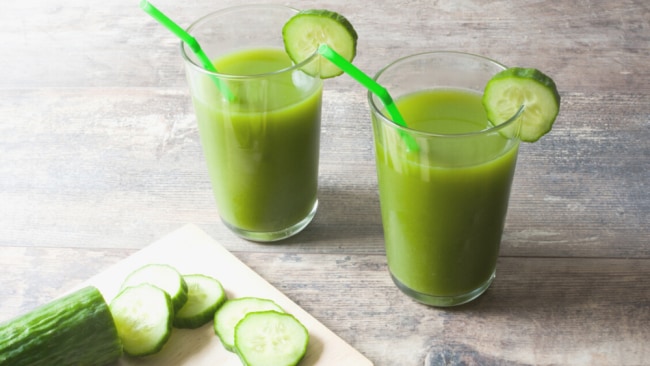

Drinking juice made from celery and cucumber has many health benefits. This blend helps fight inflammation, reduce blood pressure, and detoxify the body. Juicing these vegetables can improve your overall diet, but it is not a cure-all for all health problems. It is essential to incorporate this juice into a balanced, nutritious diet to maximize its positive effects. While cucumber and celery juice health benefits are well-documented, such as enhancing hydration and providing essential vitamins, it should be consumed alongside other whole foods for optimal health. Moderation is key, and individuals should consult a healthcare professional before making any significant changes to their diet, especially for managing specific conditions.
Healthy nutrient
Cucumbers and celery juice are excellent sources of vitamin A. Vitamin A, also known as retinol, helps new cells develop into functional tissue. Vitamin A is also important for healthy vision. It is particularly important for expectant mothers because it aids in fetal growth. One cup of cucumber juice and celery contains 316 IU of vitamin B6, or approximately six percent of the recommended daily allowance.
Celery is also rich in vitamin K, which is important for healthy blood clotting. It also helps relieve bloating and improves digestion. In addition, celery contains anti-aging flavonoids, which help prevent wrinkles. Celery extract also lowers both systolic as well as diastolic blood pressure. It is also high in antioxidants.
Helps fight inflammation
Drinking celery and cucumber juice helps fight inflammation and may reduce the symptoms of certain conditions. Celery and cucumber are rich in anti-inflammatory nutrients. Beta-carotene, vitamin C, and vitamin B are two of these nutrients. They can help regulate the immune system to reduce the risk of developing chronic diseases. Flavonoids are powerful anti-inflammatory antioxidants which protect cells from oxidative injury.
Celery contains around 25 anti-inflammatory chemicals, which help to fight inflammation-causing free radicals. It also soothes nerves and helps reduce the build-up of fat in the liver. It is also a mild laxative and diuretic.
Lowers blood pressure
Celery juice and cucumber have a number of health benefits including lowering blood pressure. One study conducted on animals found that a diet rich in celery lowered blood pressure by almost 20%. In just one week, the pressure of people who eat a daily portion of celery dropped from 158 to 96 to 118 to 82. The same results can be achieved by eating a medium rib of celery (which is one to two ounces).
Celery and cucumber juice may help reduce high blood pressure by lowering oxidative stress, a cause of hypertension. These vegetables are rich in powerful antioxidants called phenolic substances, which can affect lipid metabolism as well as lipid accumulation. This can lower serum cholesterol, which can help prevent cardiovascular disease. They can also reduce inflammation, which can be caused many ways.
Flushes toxins
Regular consumption of cucumber and celery juice is a great way for your body to detox. It contains a variety of nutrients, and the fiber they contain can help you feel better and stay healthy. Celery stalks are healthy, but celery juice has more powerful healing benefits. The added benefit of celery juice is that you can consume a greater quantity than you could by eating the vegetable.
Taking celery juice is simple – it can be made in a blender or squeezed from a celery stalk using a mesh cloth or strainer. The juice can also be enhanced by adding some fresh ginger or mint. It is best to drink this juice with a meal.
Reduces hunger
Drinking celery and cucumber juice has many benefits, but it is not without its drawbacks. Cucumber juice is very low in calories, while celery juice contains a high concentration of vitamin C. It also contains potassium and magnesium. Celery is also good for your cardiovascular health. Celery is also known for increasing bile flow, which binds the blood cholesterol.
Cucumbers and celery are high in vitamin K, which promotes healthy blood clotting and heals wounds. Vitamin K is also necessary for the development of new bone tissue. Lack of this vitamin can lead to osteoporosis. Just one eight-quarter-inch cucumber contains 316 IU of vitamin K, which is about six percent of the recommended daily allowance for adults.
Cindy thoroughly researches juicing trends, techniques, and recipes to provide readers with practical advice and inspiration. Her writing style is accessible, engaging, and designed to make complex concepts easy to understand. Cindy’s dedication to promoting the advantages of juicing shines through her work, empowering readers to make positive changes in their lives through the simple act of juicing.
Health Benefits of Juice
The Best Aloe Vera Juice Brands
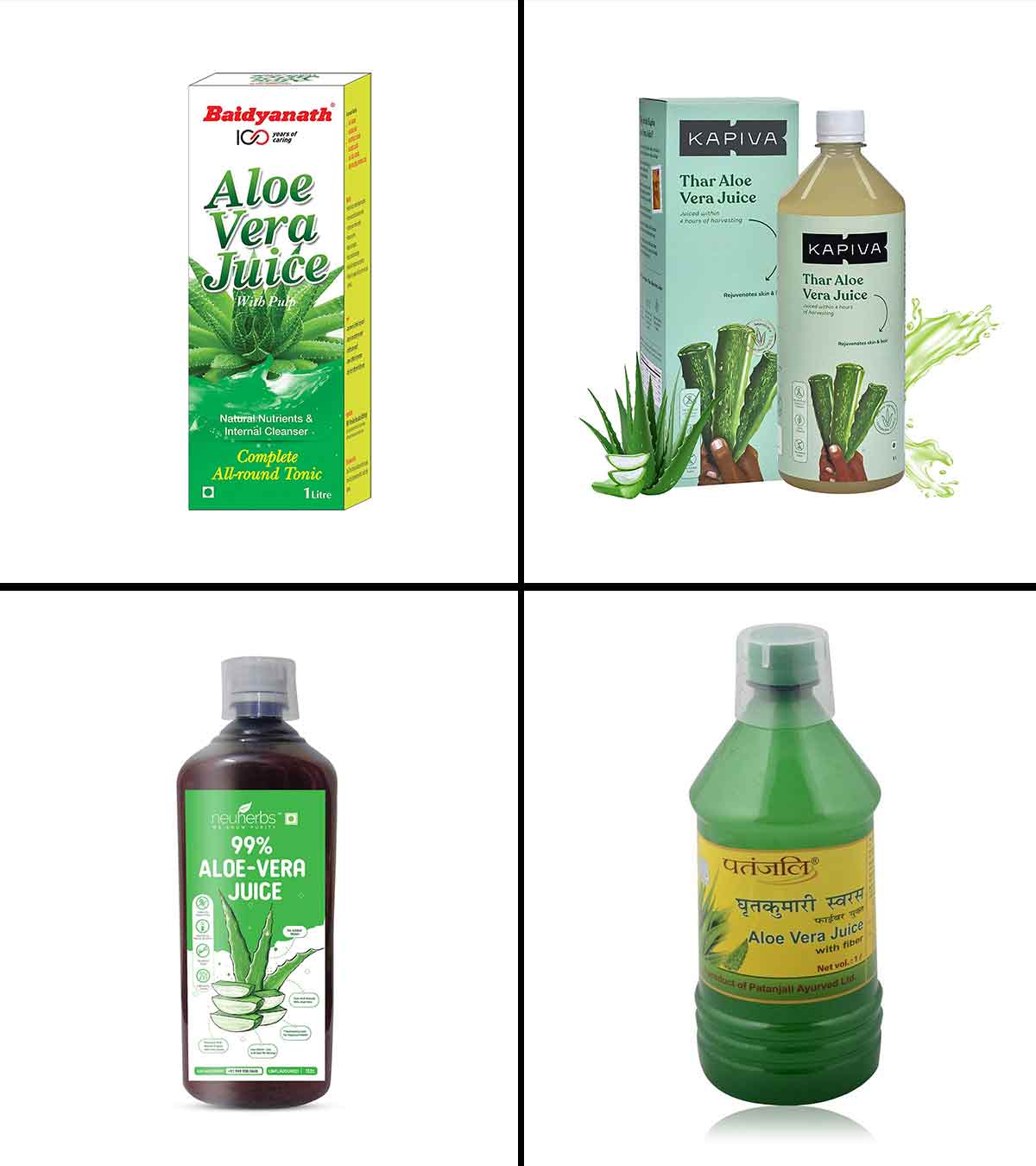

There is a diverse range of high-quality aloe vera juice options for those looking for it. Whether you require a bottle for an event or want to add it to your daily health routine, there are many options available on the market. Some of the top brands include Patanjali and Lily of the Desert. Other choices to consider are Baidyanath and Neuherbs.
Patanjali aloe vera juice
The best Patanjali aloe Vera juice has many benefits. It is inexpensive, carries a variety of flavors, and helps to reduce acne. But there are some important things to know before consuming the juice. It is best to consume the juice in the recommended dosage. It should not be taken in excess, since it can lead to constipation.
Aside from promoting overall health, Patanjali Aloe Vera Juice also helps in treating different diseases. It also regulates blood sugar and helps to control diabetes. It is rich in vitamins, minerals, and folic acids. The benefits of Patanjali Aloe Vera Juice are great for people with diabetes and hyperglycemia. This juice also contains a high level of glucomannan, which regulates blood sugar levels. It can also be helpful for people suffering from skin conditions and reduces cholesterol.
Lily of the Desert 32-ounce Whole Leaf Aloe Vera Juice
Lily of the Desert 32-ounce Whole leaf Aloe Vera Juice is an excellent option for those looking for a high-quality aloe juice. The brand has been producing aloe Vera products for over forty years. They use Certified Organic leaves. This juice has an excellent flavor and can be used on a daily basis for better health. Lily of the Desert is committed to preserving the natural aloe vera plant characteristics, such as its rich nutrient profile and soothing properties. Their processing methods ensure that the bioactive compounds are retained, providing maximum benefits for digestion, skin health, and overall well-being. This whole leaf juice is ideal for anyone seeking a natural and organic way to enhance their health routines.
The aloe vera juice from Lily of the desert contains 99% organic aloe, rich in antioxidants. It comes in convenient 32-ounce bottles and contains 35 milligrams of calcium per serving. It supports a healthy immune system as well as regular digestion.
Baidyanath 32-ounce Whole Leaf Aloe Vera Juice
Baidyanath 32-ounce Whole Leaf aloe Vera juice is high quality. It has a high level of yellow sap and solids. Each bottle averages 14500 grams. It is good for digestion and supports the immune system. This product does not contain any water, heat or preservatives, which means it is very beneficial for the body.
This product contains high amounts of magnesium, which regulates more than 300 enzyme reactions in the body. Magnesium is also known to regulate blood pressure and heart rhythm. It is often found in supermarkets across the country. It can be mixed with water or as a drink. However, you can also make your own juice by using an aloe vera spike or juice extractor.
Neuherbs 32-ounce Whole Leaf Aloe Vera Juice
Neuherbs 32-ounce Whole Leaf aloe vera juice is available in a concentrated form and is certified organic. It contains 14.500mg of solids per bottle. It is made from whole leaf Aloe vera. This juice has many benefits including energy, digestion support, and immune balance. The product is made from organic leaves and has no additives or fillers.
Aloe vera juice contains high amounts of magnesium, which helps regulate 300 enzyme reactions. This mineral also helps regulate the heart’s rhythm and blood pressure. You can buy aloe vera juice in many supermarkets around the country. It is usually packaged in a glass bottle that has been mixed with water. However, you can make your own. You will need a spike, aloe vera and a plant to make the juice.
Cindy thoroughly researches juicing trends, techniques, and recipes to provide readers with practical advice and inspiration. Her writing style is accessible, engaging, and designed to make complex concepts easy to understand. Cindy’s dedication to promoting the advantages of juicing shines through her work, empowering readers to make positive changes in their lives through the simple act of juicing.
-

 Popular Juice Brands3 weeks ago
Popular Juice Brands3 weeks ago10 Top-Rated Organic Juice Brands to Try
-

 Popular Juice Brands4 weeks ago
Popular Juice Brands4 weeks ago9 Best No-Sugar-Added Popular Juice Brands
-

 Health Benefits of Juice1 week ago
Health Benefits of Juice1 week agoHow Much Bottled Lemon Juice Equals 1 Lemon
-

 Vegetable Juices3 weeks ago
Vegetable Juices3 weeks ago12 Top Organic Vegetable Juice Brands Reviewed
-

 Juice Tips and Tricks5 days ago
Juice Tips and Tricks5 days agoHow Long Does Lemon Juice Last After Expiration Date
-
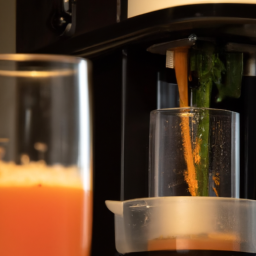
 Juice Tips and Tricks1 week ago
Juice Tips and Tricks1 week agoHow Long Does Juice Last After Juicing
-

 Juice Tips and Tricks1 week ago
Juice Tips and Tricks1 week ago2 Lemons Equal How Much Juice
-

 Vetted3 months ago
Vetted3 months ago15 Best Juices for Diabetics: Refreshing Options That Won’t Spike Your Blood Sugar

































